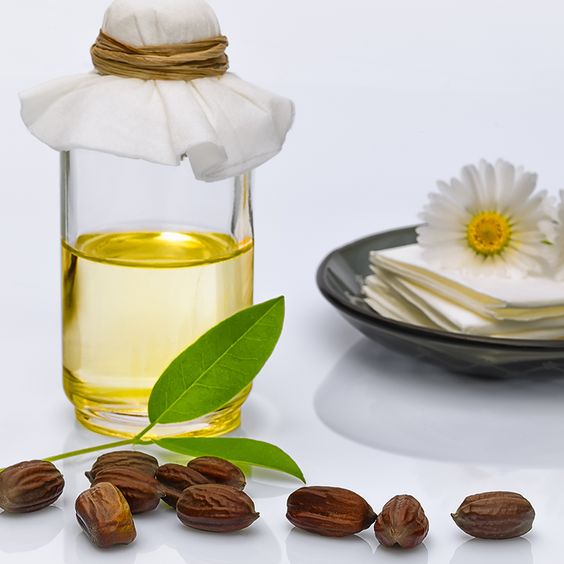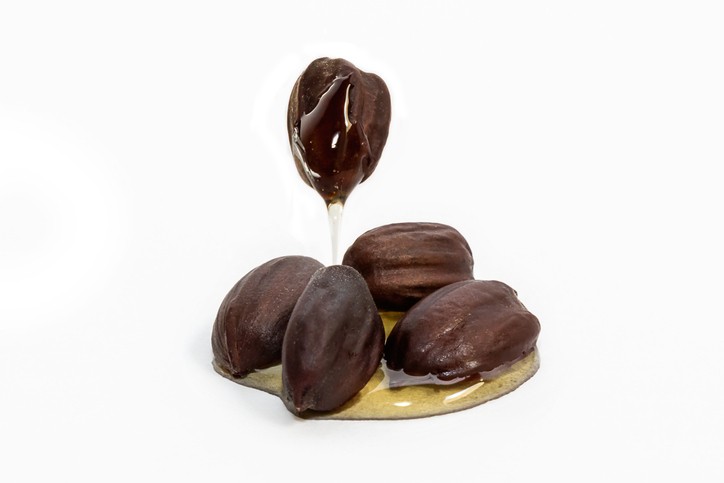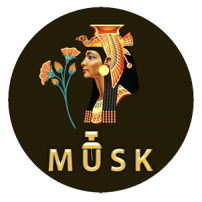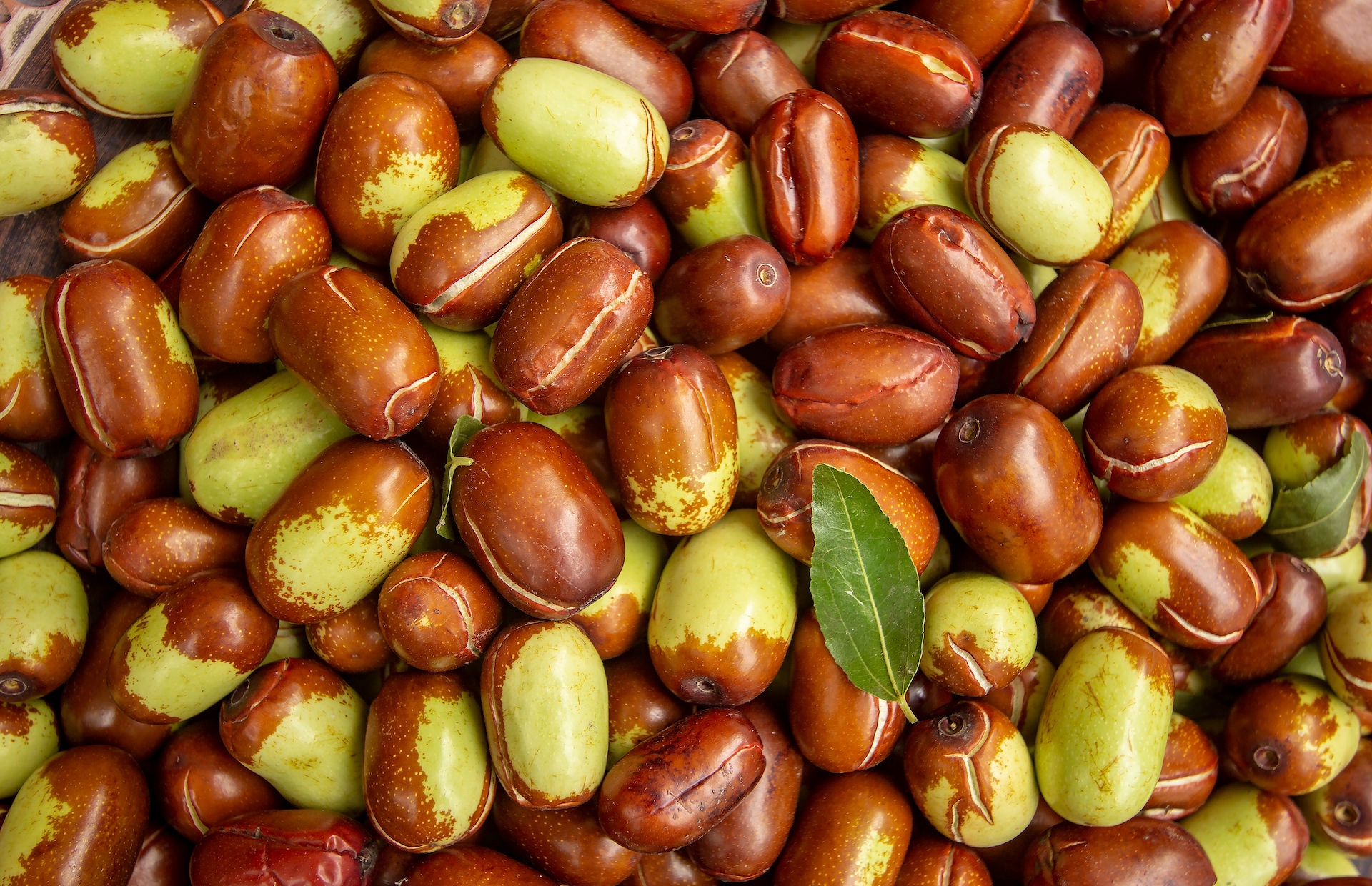The odorless ‘’ Simmondsia Chinensis ‘’ is practically a waxy extract from the Jojoba nut that has an oil texture.
The skin is always in love with this oily; simply because it imitates the natural Sebum that our skin produces but not only that, it also controls it in a way that makes our skin always looks non-greasy.
Jojoba seeds grow in several regions of the world; South of United States, the northern of Mexico and some countries in Africa including Egypt which is one of the key exporters of this type of oil in the world due to its premium quality oil.
Jojoba Oil is a key ingredient in numerous commercial products where you find it in cosmetics like cleanser or makeup remover.
It also comes in different types of shampoos, moisturizers and also as an Aromatherapy Oil.
Jojoba Oil’s versatility enables it to be used in its pure form as a standalone oil.
It can be used a diluting agent to any of the Essential Oils in order to improve its characteristics or as an enhancing agent to be added to your cream, lotion or shampoo to improve its properties.
Now, we will shed more light on Jojoba Oil properties and give more details on so many facts about this versatile and rich in value natural oil.

- Common Names. Jojoba seeds have multiple names across the globe like, Goat Nut, Pignut, Quinine nut, Grey Box Bush, Wild Hazel and Coffee Berry.
- Parts Used. The Nut only.
- Usage and Properties. Jojoba seeds were used by native Americans long time ago after being grounded into a buttery textured salve to heal the skin.
Seeds were eaten by females to help them having an easy childbirth and also as a good medication for cold symptoms.
Jojoba Oil has softening and soothing properties when applied to the skin as it takes moisture out to the external layer of the skin hence, it relieves dryness and itching.
Jojoba Oil is endorsed heavily in Alternative Medicine as an effective natural medication for several diseases like, Acne, Sunburns, Eczema, Hair Loss, Psoriasis, Wrinkles, and Stretch Marks.
- Pores Friendly. Jojoba Oil is a noncomedogenic oil that doesn’t clog pores which makes it totally different and distinguished from all other Essential Oils.
- Natural Ingredients. As a matter of fact, Jojoba Oil is rich with many natural components like, Stearic acid, Palmitic acid, Oleic acid, Vitamin E&B and Silicon. These ingredients enrich Jojoba Oil with emulsifying, antioxidant, elastic, moisturizing and soothing properties.
- How to Use. Jojoba Oil is intended to be used externally as a topical-use oil. It is not meant for internal use as this unadvised behavior may result in some serious symptoms like stomach pain, sudden thirst or diarrhea.
- Natural Reproduction. Jojoba seed needs about 3 years to reproduce more seeds and become ready for harvesting.
Professional and experienced farmers have the know-how about the right irrigation methods Jojoba seeds which is Drip Irrigation because this method carefully and accurately controls the rightly needed amount of water to be released for the Jojoba seed in order to grow fruitfully.
- Oily Component of The Seed. Jojoba seed’s oil component reaches 50% of the total seed’s weight. The oil is extracted in a waxy semi solid texture.
- Shelf Life. Due to its waxy texture when extracted; Jojoba Oil shelf life is way longer than other Carrier Oils like Olive Oil as it can reach 5 years compared to 18 months for most of other oils.
Jojoba Oil is resistant to high temperature and can easily be stored at room temperature especially if packed in dark amber or dark blue glass bottles instead of cheap plastic ones.
Jojoba Oil can be negatively affected by sunlight and may lose its premium quality grade by direct exposure to the sun hence, proper packaging material and color is crucial to maintain the highest levels of oil’s quality during its shelf life.
- Purity. Generally, Jojoba Oil stands out as a 100% Natural Oil compared to many other Synthetic Oils that can be prepared and processed in laboratories hence, they are cheaper than natural oils and less in quality and medicinal properties.
Jojoba Oil is 100% a pure oil by nature and not being diluted by any type of Synthetic Oils which makes Jojoba Oil loses its purity and potency.
Exporting Essential and Natural Oils to Global Markets

Recently, consumers became increasingly aware of the importance of maintaining a healthy yet consistent lifestyle, Aromatherapy and Nutraceuticals are increasingly demanded and sought after in globally and particularly in Europe.
Manufacturers and importers understand the potential and opportunity in this trend by expanding their geographical pool of Essential and Natural Oils exporters across the globe.
They focus on premium quality Botanical Oils that has high value with low volume characteristics.
European Market as an example; is the largest market for Essential Oils and one of the two key markets for aromatherapy products in the world.
Anyone can easily notice the impact of such an increased level of interest and search for Aromatherapy products on the exponential amount of information, technical details and product claims that became widely available to and reachable by consumers about such products.
In fact; product claims may not be of such a great importance or even needed anymore as consumers now are very well educated about natural properties and usage techniques of most of these Natural and Essential Oils.
That’s said; cosmetics manufacturers started using Essential Oils that have Aromatherapy benefits and effective properties in their enhanced R&D for product innovation.
They consequently promote for these products using attractive marketing terms like ‘’Relaxing’’, ‘’Anti-Aging’’, ‘’Antiseptic’’, etc. They label their products accordingly relying on the most effective medicinal properties in each of them.
Conclusion
The European demand for natural oils is increasing remarkably over the last 5 years.
Intensive competition between European importers for such natural ingredients and components like Jojoba Oil from emerging exporting markets and the consistently high demand for raw materials accelerated European importers’ active search for new suppliers.

For exporters like ‘’ MUSK’’, we strategically focus on exporting final products of Essential Oils rather than raw materials.
We do understand that most of the global buyers and Europeans in particular are looking for added value that exists in fully manufactured Essential Oils, simply because they can use these Essential Oils to manufacture a wide range of food and drink products where oils can be used as an additive or as a major ingredient of the product itself.

